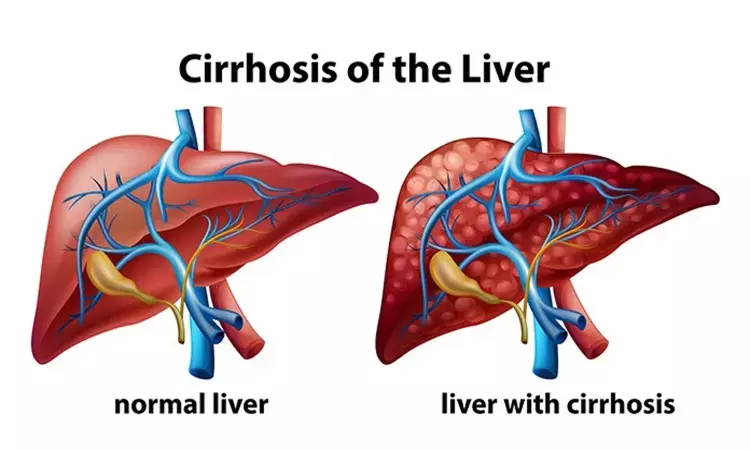- Home
- Medical news & Guidelines
- Anesthesiology
- Cardiology and CTVS
- Critical Care
- Dentistry
- Dermatology
- Diabetes and Endocrinology
- ENT
- Gastroenterology
- Medicine
- Nephrology
- Neurology
- Obstretics-Gynaecology
- Oncology
- Ophthalmology
- Orthopaedics
- Pediatrics-Neonatology
- Psychiatry
- Pulmonology
- Radiology
- Surgery
- Urology
- Laboratory Medicine
- Diet
- Nursing
- Paramedical
- Physiotherapy
- Health news
- Fact Check
- Bone Health Fact Check
- Brain Health Fact Check
- Cancer Related Fact Check
- Child Care Fact Check
- Dental and oral health fact check
- Diabetes and metabolic health fact check
- Diet and Nutrition Fact Check
- Eye and ENT Care Fact Check
- Fitness fact check
- Gut health fact check
- Heart health fact check
- Kidney health fact check
- Medical education fact check
- Men's health fact check
- Respiratory fact check
- Skin and hair care fact check
- Vaccine and Immunization fact check
- Women's health fact check
- AYUSH
- State News
- Andaman and Nicobar Islands
- Andhra Pradesh
- Arunachal Pradesh
- Assam
- Bihar
- Chandigarh
- Chattisgarh
- Dadra and Nagar Haveli
- Daman and Diu
- Delhi
- Goa
- Gujarat
- Haryana
- Himachal Pradesh
- Jammu & Kashmir
- Jharkhand
- Karnataka
- Kerala
- Ladakh
- Lakshadweep
- Madhya Pradesh
- Maharashtra
- Manipur
- Meghalaya
- Mizoram
- Nagaland
- Odisha
- Puducherry
- Punjab
- Rajasthan
- Sikkim
- Tamil Nadu
- Telangana
- Tripura
- Uttar Pradesh
- Uttrakhand
- West Bengal
- Medical Education
- Industry
Why women are less likely to die of liver cirrhosis than men

New York- Women are less likely to die of liver cirrhosis than men, say researchers, adding that this chronic liver disease affects both men and women equally.
Prior studies have suggested women might have higher mortality of cirrhosis of the liver than men. Women are also less likely to receive liver transplantation.
"We knew that women are not receiving liver transplants at the same rate as men, but we did not know if liver cirrhosis leads to more death in women than in men," said lead author Dr Daniela Ladner, Associate Professor at Northwestern University in the US.
For the findings, published in the Journal of Hepatology, the research team analysed a cohort of 20,045 patients with cirrhosis using a Chicago-wide electronic health record database.
Cirrhosis is a leading cause of death estimated to affect more than four million people in the US. Although alcohol is a top cause of liver disease, most patients with cirrhosis do not have alcohol-related liver disease.
The study showed women with cirrhosis have lower overall mortality but no difference in the liver-related cause of death despite a lower rate of liver transplantation compared to men.
"The important takeaway should be that men and women should be treated similarly as their cirrhosis-related risk is the same," Ladner said.
The researchers noted population-based studies are important to truly understand the risks to different subgroups within the population.
The reasons for the past uncertainty is men and women have different causes of liver disease, different severities of liver disease and a different mix of other health conditions, the study said.
"The research is part of an ongoing push to make sure that patients are treated fairly and equitably in medicine. In many areas, it is increasingly shown that women are disadvantaged," Ladner added.
For further reference log on to:
Medical Dialogues Bureau consists of a team of passionate medical/scientific writers, led by doctors and healthcare researchers. Our team efforts to bring you updated and timely news about the important happenings of the medical and healthcare sector. Our editorial team can be reached at editorial@medicaldialogues.in.
Dr Kamal Kant Kohli-MBBS, DTCD- a chest specialist with more than 30 years of practice and a flair for writing clinical articles, Dr Kamal Kant Kohli joined Medical Dialogues as a Chief Editor of Medical News. Besides writing articles, as an editor, he proofreads and verifies all the medical content published on Medical Dialogues including those coming from journals, studies,medical conferences,guidelines etc. Email: drkohli@medicaldialogues.in. Contact no. 011-43720751


